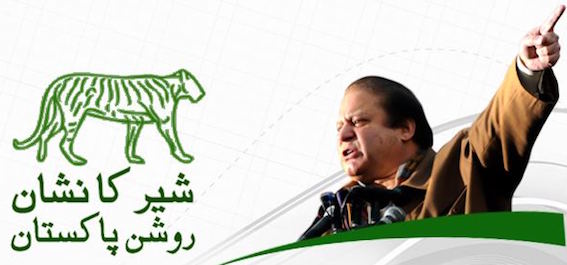The ruling political party in Pakistan, Pakistan Muslim League-Nawaz (PML-N) is the least democratic party in the country.
According to the report prepared by Pakistan Institute of Legislative Department and Transparency (PLDAT), the PML-N is followed by the Muttahida Qaumi Movement and the Jamait Ulema-e-Islam-Fazl, rated as the second least democratic parties among the eight parties evaluated.
The Jamaat-e-Islami emerged as the most democratic party of the country in a survey conducted by PILDAT to evaluate the internal democracy of political parties.
The Pakistan Threek-e-Insaf, which has slipped to third position despite the fact its party elections were among the most popularly contested and elaborate party elections in the country’s history.
The report further states: “PTI’s next election scheduled for 2016 will decide not only the party’s own democratic credentials, but the success or failure of this experiment may also decide future trends in the internal party elections of political parties in Pakistan,”
“Regular elections, regular change in leadership through election, regular meetings of the Consultative Council (Shura) and the Working Committee (Aamla) and discouragement of dynastic leadership within the party, have apparently favoured the Jamaat-e-Islami (JI) rated as the most democratic political party,” said the PILDAT report.
A landmark amendment was made in the constitution of the party in October 2015 in which 10 seats have been allocated for women in the party’s Majlis-e-Shura. Although Jamaat follows a particular type of internal democracy in which there are no candidates in party election and election campaign is not allowed, this pecularity has not come in the way of the party securing top position as the most democratic party.
The National Party (NP) (currently led by Senator Mir Hasil Khan Bizenjo) has emerged as the second most democratic party of 2015 with an overall score of 47%, which is a significant improvement over party’s 4th position in 2014. Regular change in top leadership since its founding in 2003, party conventions successfully conducted in 2015 in which transparent party elections also took place for all four provincial chapters of the party, and lack of any sign of dynastic leadership have favoured the democratic credentials of NP.






